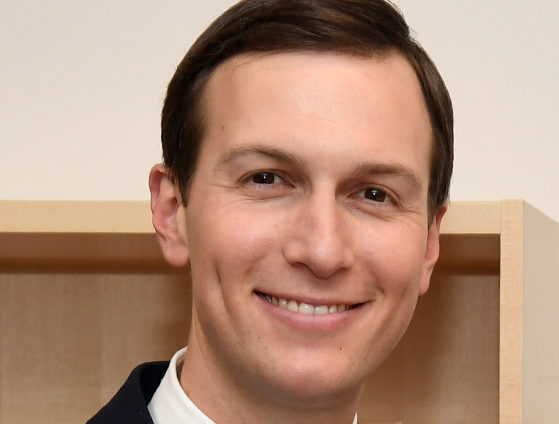
Senior White House adviser Jared Kushner stoically defended his long-awaited “deal of the century” proposal at the ‘Peace for the Sake of Prosperity’ economic workshop in Bahrain this week.
Kushner told delegates at the two-day workshop that the proposal was the most comprehensive economic plan ever created specifically for Palestinians and broader Middle East.
US President Donald Trump’s senior advisor called on Palestinians to consider the plan even though they have consistently dismissed it.
“Despite what those who have let you down in the past have told you, President Trump and America has not given up on you,” he said. “This workshop is for you, and if this is executed correctly, it will lead to a better future for the Palestinian people, a future of dignity, prosperity and opportunity.”
He added, “Agreeing on an economic pathway forward is a necessary precondition to resolving what has been a previously unsolvable political situation. We can turn this region from a victim of past conflicts into a model for commerce and advancement throughout the world.
“Today is not about the political issues. We will get to those at the right time.”
Delegates did not include an official Palestinian delegation, Israel was not invited to send government officials. But there were Arab finance ministers, heads of international financial organisations, global business executives and investors.
Kushner said that even without Israeli and Palestinian governments, the presence of Israeli business executives and journalists with Arab counterparts was significant.
Commenting on the much-maligned proposal by Palestinians, Prime Minister Benjamin Netanyahu said, “We will hear the American proposal in a fair and open manner. I can’t understand how the Palestinians rejected the plan before even hearing what it is in it.”
Netanyahu added that any peace agreement must include an Israeli presence in the Jordan Valley, an area Palestinians want as a future state.
“For those who say that for peace to be established Israel has to leave the Jordan Valley, I’ll say that’s not going to bring peace, that’s going to bring war and terror,” explained Netanyahu. “We’ve been there and we don’t want to be there again.
“Under any peace agreement, our position will be that Israel’s presence should continue here for Israel’s security and for the security of all.”
Speakers at the two-day conference welcomed the US proposal but warned it fell short of lasting peace.
“The Palestinians have great economic potential that can only be fulfilled with serious reform and protections for investors that must include serious anti-corruption efforts, but those alone are not enough, a satisfactory peace is imperative for prosperity. It’s a matter of putting all the ingredients together,” said Christine Lagarde, International Monetary Fund.”
“Improving economic conditions and attracting lasting investment to the region depends ultimately on being able to reach a peace agreement,” she added in an IMF statement.
“Peace, political stability and re-establishment of trust between all the parties involved are essential pre-requisites to the success of any economic plan for the region.”
The IMF has operated in the West Bank and Gaza since 1995 providing financial and policy advice to the Palestinian Authority.
Other speakers included former Prime Minister Tony Blair and FIFA head Gianni Infantino.
Infantino, who participated despite Palestinian appeals to reconsider.
“With football, through football, we can really build bridges,” he said.
“Let’s use football as a tool to show what is possible. We play football in Palestine, in Lebanon, it is possible. Football can play a little role, but an important one.”
The $50 billion proposal aimed at building support for a program of private investment and support from regional governments to economically transform Palestinian communities.
Under the plan, investors would contribute $50 billion over 10 years, $28 billion going to Palestinian territories, $7.5 billion to Jordan, $9 billion to Egypt and $6 billion for Lebanon.
Among 179 proposed infrastructure and business projects is a $5 billion transport corridor connecting the West Bank and Gaza.
The proposal aimed to create a million jobs, cut Palestinian unemployment to single digits, double Palestinian gross domestic product and reduce Palestinian poverty in health care, education, power, water, tourism, transportation and agriculture sectors.
The plan acknowledged completion of an Israeli-Palestinian peace deal.
Palestinians staged protests in Gaza and West Bank, the Palestinian Liberation Organisation condemned the plan over Israel bias.
By Leah Waxler









